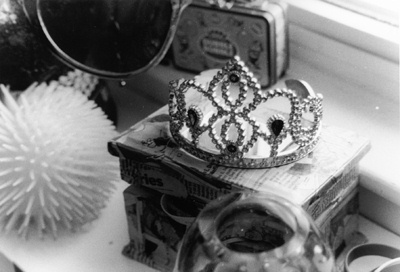All Nonfiction
- Bullying
- Books
- Academic
- Author Interviews
- Celebrity interviews
- College Articles
- College Essays
- Educator of the Year
- Heroes
- Interviews
- Memoir
- Personal Experience
- Sports
- Travel & Culture
All Opinions
- Bullying
- Current Events / Politics
- Discrimination
- Drugs / Alcohol / Smoking
- Entertainment / Celebrities
- Environment
- Love / Relationships
- Movies / Music / TV
- Pop Culture / Trends
- School / College
- Social Issues / Civics
- Spirituality / Religion
- Sports / Hobbies
All Hot Topics
- Bullying
- Community Service
- Environment
- Health
- Letters to the Editor
- Pride & Prejudice
- What Matters
- Back
Summer Guide
- Program Links
- Program Reviews
- Back
College Guide
- College Links
- College Reviews
- College Essays
- College Articles
- Back
Media Effects Us
Every day teenagers are pummeled in the face with images of ideal body images telling them they have to look a certain way to be desirable. The constant exposure of this from media makes it easier for teens to find these messages on TV, magazines, commercials, etc. With current technology teens (mostly girls) feel the pressures of media everywhere without any escape. These images of unrealistically ‘perfect’ people have most likely been altered by professional photo shoppers. Teens see these pictures of photo shopped celebrities that they look up to and want to look like them. These images influence the majority of teens today on how to eat and look. They tell girls to get skinnier for the ‘perfect’ body image and many teens listen.
There has always been an influence of body image throughout time. Rewind to the 1920s, the ideal body image was to be flat chested and have a boyish figure. The 1930s, the golden age of Hollywood, took a drastic change and having curves and an hourglass figure was the ideal body image. Fast-forward to the 1960s, the body standard was to be thin and have long legs. In the 80s, also called the supermodel era, girls were expected to be athletic looking and toned, and tall and curvy. The 90s was called the heroin chic era was a dangerous beauty standard where being extremely thin and androgynous. These body images changed so much throughout time to bring this to the present day. The media is everywhere, so the influences of body image have a greater effect on people today. During this day, it is expected to be thin but not ‘unhealthily’ thin. Girls ‘should’ have a thigh gap in between their legs, which in some cases is anatomically impossible for girls to achieve. The media tells girls through these many altered pictures of teenage role-models/ beautiful supermodels to have a flat stomach, but be curvy and have a womanly figure at the same time. Studies show that many women achieve this look through an abundance of risky procedures of plastic surgery. Other girls become obsessed with this ideal body image which can escalate to a dangerously unhealthy lifestyle. These teens can be diagnosed with harmful eating disorders such as bulimia, and anorexia. Surveys show that 91% of women reported that they are unhappy with their bodies and resorted to dieting to achieve the ideal body standard. 91% is an astoundingly large number of women which needs to be changed. The fact that media has the biggest effect on body standards is a big problem with because it surrounds teens’ daily lives. This problem needs to be brought to everyone’s attention. Girls are starving themselves to death to fit in to the perfect ‘mold’. Girls and boys need to learn to love themselves for who they are because they are stuck with their bodies for the rest of their lives. Media should be showing young teens how to love their bodies instead of tearing them down. Instead of focusing on how skinny or pretty someone is media should focus more on how physically yourself and mentally healthy they are. So instead of stopping in a line at the market to look at or buy a demeaning magazine, learn to treasure yourself regardless of all of the media surrounding you and accept for who you are.

Similar Articles
JOIN THE DISCUSSION
This article has 0 comments.
